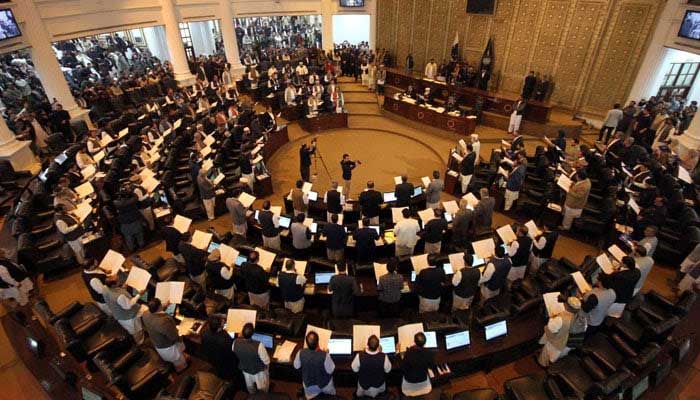The Khyber Pakhtunkhwa government and opposition parties have agreed to hold uncontested Senate elections, with six PTI candidates and five opposition nominees set to be elected unopposed. The breakthrough came after late-night negotiations in Peshawar, confirmed by Opposition Leader Dr Ibadullah. PTI’s picks include prominent figures like Murad Saeed and Faisal Javed, while the opposition’s slate features Talha Mehmood (PML-N) and JUI-F’s Dilawar Khan. Chief Minister Ali Amin Gandapur hailed the consensus in a video message alongside opposition leaders.
Internal Rifts and Last-Minute Hurdles
While the deal signals rare cooperation, internal dissent persists. The PML-N withdrew its minority-seat candidate in favor of the JUI-F, but within PTI, several denied aspirants—including Irfan Saleem and Ayesha Bano—refuse to withdraw. They voiced grievances during a meeting with PTI Secretary-General Salman Akram Raja, who will convey their concerns to CM Gandapur. A three-member PTI committee has been formed to manage the discontent ahead of the July 20 assembly session, where reserved-seat members will also take oath.
Governance Moves and Session Summons
CM Gandapur formalized the next steps by signing a summary to convene the KP Assembly on July 20, forwarded to Governor Faisal Karim Kundi. The session will likely mark a smooth Senate election process unless dissenting PTI members disrupt proceedings. Meanwhile, opposition leaders, including PML-N’s Senator Talha Mehmood, emphasized unity, having resolved earlier disputes over candidate selection.
Broader Implications for Political Stability
The agreement averts a potentially contentious election, but lingering PTI infighting underscores challenges in maintaining party discipline. If the Senate elections proceed as planned, KP will set a precedent for political compromise—a contrast to the usual adversarial politics. However, with aggrieved PTI candidates still in the fray, the coming days will test whether this fragile consensus holds or unravels under pressure.














